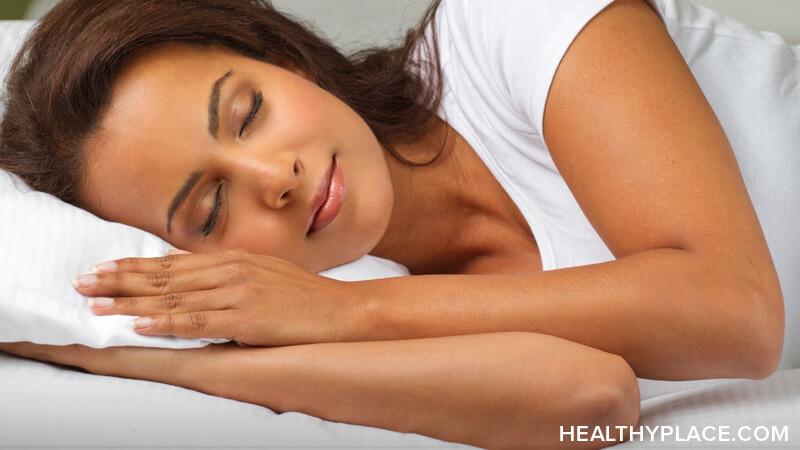Improve Sleep to Reduce Anxiety

The last time you got a poor night's sleep, did you feel more anxiety during the next day? And on the other side, how often have you noticed your sleep was really bad before a big deadline or after a really anxiety-provoking day? I notice stress affecting my sleep more than I notice poor sleep affecting my anxiety, but I have experienced both of these, and it's actually pretty common for people experiencing regular anxiety.
Sometimes this ends up feeling like getting stuck in a loop of anxiety -- I feel more stress when my sleep is poor, and then I sleep more poorly when I've experienced a stressful day. It can also be really difficult to implement good sleep hygiene when there's a lot going on or a lot of stress during the day; so, I've noticed that developing those skills into regular habits can be important for handling those stressful days.
Today, we'll discuss some of the evidence surrounding sleep and anxiety and then identify a few ways to improve sleep that you can use in your daily life.
Understanding Sleep and Anxiety
A recent meta-analysis found that people suffering from an anxiety disorder experienced greater subjective sleep disturbance, shorter sleep, and less sleep continuity compared to people who didn't have an anxiety disorder.1 Changes in sleep also have an influence on anxiety. Another meta-analysis identified that sleep deprivation leads to increases in state anxiety levels.2
Importantly, this analysis focused on total sleep deprivation (not getting any sleep in a night), whereas they did not find significant results for sleep restriction (getting less sleep but still sleeping). There are important caveats to both studies, but the main takeaway is that there seems to be a bi-directional relationship between sleep and anxiety or anxiety disorders.
How to Improve Your Sleep to Minimize Anxiety
- Get outside. Getting enough light during the day can be an important factor in how well your sleep at night. This has been especially tough during the winter and COVID, but when you can, do your best to at least pull up the shades of your home and let as much natural light in as possible.
- Get active. Regular exercise during the day can also improve your sleep. It's important to exercise earlier in the day since exercise right before bed can actually make it more difficult to sleep. Developing a regular exercise routine can be a great way to enhance your sleep.
- Get sleepy. At night, there are a lot of strategies to use that can improve sleep. The dos: minimize electronics use, take a shower/bath, keep your bedroom cool, use deep breathing. The don'ts: eat a large meal, drink caffeine or alcohol. If you are doing any of the don'ts, I would start by trying to cut down on them since they might be having a large effect on your sleep. Cultivating positive sleep habits will be really beneficial, too -- I find that a shower/bath often helps me get sleepy and ready for bed.
I hope these strategies will help you improve your sleep even when you're experiencing a lot of stress. Are there other strategies you've found helpful for improving your sleep and anxiety? Please share below.
Sources
- Cox and Olatunji, “Sleep in the Anxiety-Related Disorders: A Meta-Analysis of Subjective and Objective Research.” Sleep Medicine Reviews, June 2020.
- Pires et al., “Effects of Acute Sleep Deprivation on State Anxiety Levels: A Systematic Review and Meta-Analysis.” Sleep Medicine, August 2016.
APA Reference
Abitante, G.
(2021, February 28). Improve Sleep to Reduce Anxiety , HealthyPlace. Retrieved
on 2026, January 12 from https://www.healthyplace.com/blogs/treatinganxiety/2021/2/improve-sleep-to-reduce-anxiety
